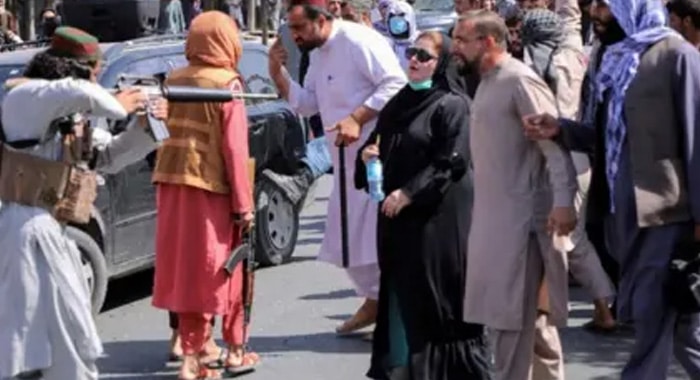Armed Taliban-affiliated individuals have reportedly issued death threats to Afghan women employed by United Nations agencies in Kabul, marking an alarming new phase in the group’s systematic campaign to erase women from public life and obstruct international humanitarian efforts.
According to credible sources within UN offices who spoke to media, over the past two days, armed men have stalked, harassed, and intimidated Afghan female staff working with UNICEF, UNDP, UNAMA, UNFPA, and the World Health Organization. The intimidation campaign, which began near the UN’s central office in Pul-e-Charkhi, has extended to multiple neighbourhoods across Kabul, including Macroryan, Karte Char, Darulaman, Khair Khana, Karte Naw, Arzan Qemat, and Kote Sangi.
The threats are not confined to the workplace. Armed individuals have visited the homes of female staff, threatening their fathers, husbands, and brothers with violence if the women return to work. In several disturbing cases, male relatives were reportedly forced at gunpoint to swear that they would prevent their daughters, wives, or sisters from continuing employment. Witnesses have described scenes of humiliation, video recordings, and verbal abuse, with families left terrified and silenced.
This is the first time Taliban threats against female United Nations personnel have escalated from restrictive decrees to direct death threats. While a 2022 decree signed by Taliban supreme leader Hibatullah Akhundzada banned women from working in non-governmental organisations, limited exceptions had been observed, particularly in Kabul. Those exceptions now appear to be collapsing under violent enforcement.
In response, UN agencies have advised female Afghan staff to work from home, but employees say they have received no formal assurances or protective measures from UN leadership. “We are not just being sidelined — we are being hunted,” said one female staff member on condition of anonymity. “The international community must no longer remain silent.”
The threats come amid a broader deterioration of women’s rights in Afghanistan, where the Taliban regime has already banned secondary and higher education for girls, barred women from most public-sector jobs, and enforced severe restrictions on their movement and visibility in society.
Women working with the United Nations now fear not only for their livelihoods but for their lives. As the space for female participation vanishes, calls are growing for urgent international intervention to protect those still resisting the regime’s brutal erasure of women.
This latest escalation reinforces fears that Afghanistan, under Taliban rule, is descending into a state of lawlessness where even the United Nations is unable to protect its own staff — a stark indictment of the international community’s failure to hold the regime accountable.





